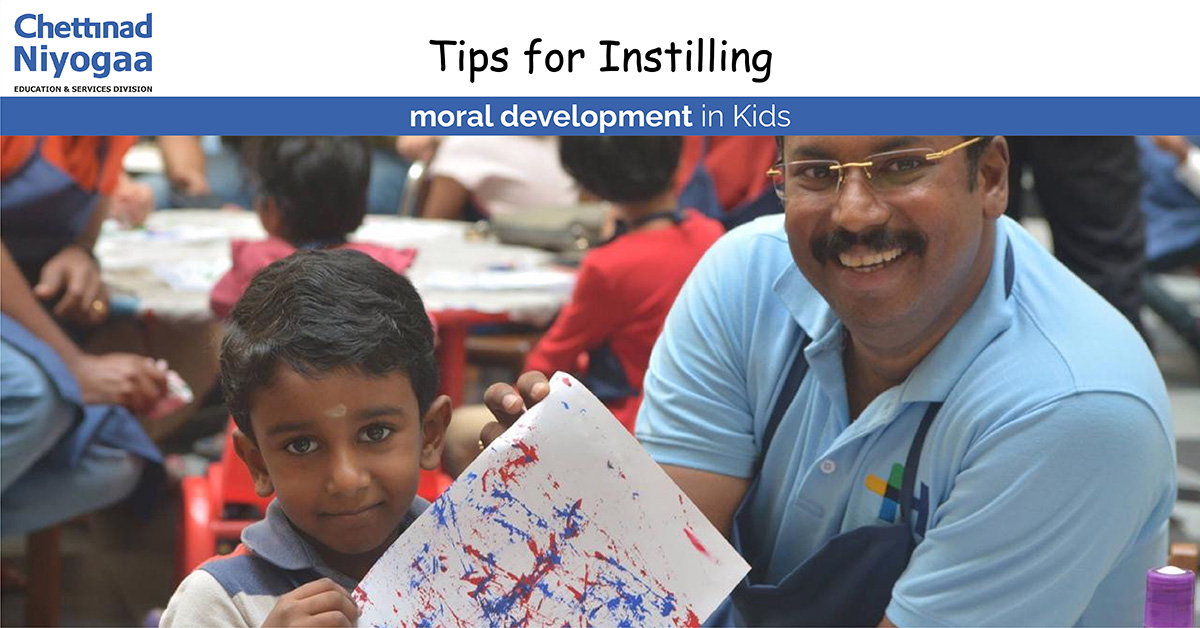
Topics: Tips for Instilling Moral Development in Kids
One of the unique features of humanity is knowing the difference between right and wrong. Understanding the good and bad is essential for every parent, and they must ingrain the same in their children. The ability to differentiate between right and wrong must be rooted in early childhood, so they don’t go wrong in adulthood. They need to understand that they must nurture the good and refrain from the bad.
Above all, it makes them more compassionate and instills moral education in kids. When you see the news, you might think that the world is full of bad people, but in reality, it is not true because there are thousands of good people, yet for every drunk driver, there is a driver who abides by all the rules. Even though it might appear simple, like possessing a strong moral compass is easy, but in reality, it is not easy for sure. From a young age, it should be taught as morality is difficult to instill as the child moves towards adolescence and, eventually, adulthood. For instance, a kid won’t share his food with his peers and most probably eat alone if a child is not taught to share his lunch.
So, what can you do to be a responsible parent to teach moral development in children? No doubt, instilling morality is a long but not tedious process for sure. Character is learned similarly, just like a child learns specific skills at specific age brackets.
Age 0-2:
For a child, what feels natural also feels comfortable during this age as they tend to vocalize their thoughts and use their limbs. A little of morality can also be learned even though their brain is busy teaching the body the necessities to survive, including walking and eating. Remember, during this stage, a kid learns from the mother by imitating, allowing your child to feed a stray in the streets or birds out in the garden will make a difference. Here the child does not have to understand the meaning behind it as the task is all about developing the process.
Age 2-4:
Here kids imitate the parents but do not understand the reasons behind their actions. It is pretty fine as the parts of their brains where ‘reasons’ are contemplated aren’t developed completely yet. But the child might have just joined the nursery, and it is one of the great places to teach your child to practice good things. Ask your kids to share their tiffin meals with other kids. When this happens, your child is most likely to get a lot of attention in nurseries that they attend A harmless and straightforward punishment will do the trick if a child is failing to follow your instructions. Even though the child doesn’t understand why doing what mommy refers to as ‘good’ brings them more excellent experience in life and ‘bad’ gives them a bad experience, one thing is for sure, and kids will start linking good deeds to excellent, bad to unpleasant.
Age 5-10:
During this age, kids can learn a lot of morality as they become relatively reasonable. For example, you can get a cat or a dog and set an example by treating them with love. Consider taking your kids to local parks and make them see the homeless. Let them see the less fortunate side of the world, so they get curious to know about the inequalities in it. Then you can teach them that every human must take care of every other human once they bombard with you a plethora of questions. Teach them that everything can be shared to the ones who are less blessed as they are, including toys, food, and books. It is all about giving your child a highly nurturing exercise in morality.
Age 10 – 16:
Here is the final stage to impart any knowledge in a child as, after 16, children tend to defy parents and go against what parents tell them to do. Ensure you make them take trips to orphanages and old age homes where they come in contact with the people who aren’t as blessed as they are. This will help them become more empathetic and compassionate.
Wrap up:
You can easily follow these steps and tag your child along whenever you do something charitable. Children have this amazing inborn skill, which is observing, so they end up copying the actions and habits of the people whom they are surrounded with during the day. Hence, when the parents do something which is full of morals and values, their children end up doing the same thing, and as they grow, they will understand why it is the right thing to do.
Get to know more about instilling moral development in kids by the best education management company in Chennai.